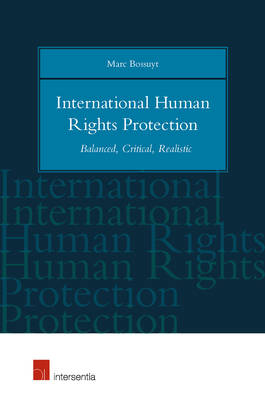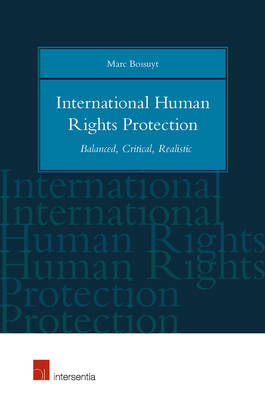
- Afhalen na 1 uur in een winkel met voorraad
- Gratis thuislevering in België vanaf € 30
- Ruim aanbod met 7 miljoen producten
- Afhalen na 1 uur in een winkel met voorraad
- Gratis thuislevering in België vanaf € 30
- Ruim aanbod met 7 miljoen producten
Zoeken
€ 95,95
+ 191 punten
Omschrijving
International Human Rights Protection, addressed to judges and lawyers, diplomats and civil servants, researchers and students, is based on the author's personal research and personal involvement with a wide range of subjects, such as the basic concepts of civil and social rights, discrimination and affirmative action, issues of procedure and jurisdiction and issues such as the death penalty and the protection of refugees, minorities and victims of armed conflicts. At the universal level, the book introduces the reader to the labyrinth of United Nations Charter-based and treaty-based procedures. As well as an overview of the Inter-American and African systems, it deals at the regional level particularly with the case law of the European Court of Human Rights in Strasbourg, and also looks at the national level at the case law of the US Supreme Court and the South African Constitutional Court.This book adopts a particularly critical approach to the so-called "dynamic" interpretation of the European Convention on Human Rights by the Court of Strasbourg. It is the author's feeling that judges, in particular those belonging to courts specialising in human rights, have a tendency to systematically support interpretations benefitting the applicants, while overlooking too easily the far-reaching implications of judgments for society as a whole. He prefers a more balanced and more realistic approach taking into account the difficulties democratic governments face in coping with the challenges of our present time and with the pressing needs of the realities of today's world.
Specificaties
Betrokkenen
- Auteur(s):
- Uitgeverij:
Inhoud
- Aantal bladzijden:
- 232
- Taal:
- Engels
Eigenschappen
- Productcode (EAN):
- 9781780684000
- Verschijningsdatum:
- 20/08/2016
- Uitvoering:
- Hardcover
- Formaat:
- Genaaid
- Afmetingen:
- 160 mm x 240 mm
- Gewicht:
- 566 g

Alleen bij Standaard Boekhandel
+ 191 punten op je klantenkaart van Standaard Boekhandel
Beoordelingen
We publiceren alleen reviews die voldoen aan de voorwaarden voor reviews. Bekijk onze voorwaarden voor reviews.











